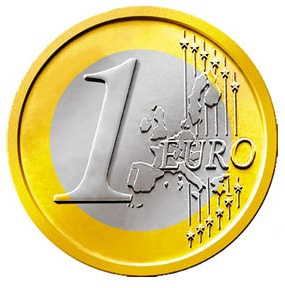
With the massive protests in Spain over the weekend and calls from respectable quarters for Greece to leave the Euro – which, as Daniel Knowles of the Telegraph succinctly illustrates (echoing Barry Eichengren’s working paper), could have genuinely catastrophic results – the future of the Eurozone is very much in question today in the world media.
Last August, Lorenzo Smaghi, writing for Foreign Affairs, offered an optimistic assessment that put a lot faith in the new financial governance structures – mainly the European Financial Stability Fund (EFSF) – implemented that summer, but that optimism now seems to have been overtaken by events.
Whereas Charles Calomiris, in Foreign Policy, was telling us in January that the Euro was dead, in the May/June print edition of Foreign Affairs, Henry Farrell and John Quiggin offered a proposal to save it – “and the EU.”
In February Stephen Walt weighed in on the implications of the crisis for traditional IR theory, while Wulfgang Munchau had a more Augustinian take – with which Roger Cohen seems to agree and tries to explain on the opinion page of today’s New York Times.
The Economist’s Charlemagne blog focused today on the irony of John Lipsky, the interim head of the IMF in Dominique Strauss-Kahn’s enforced absence, calling for greater economic integration in Europe in response to the crisis; while the editorial page of the Spanish daily El Pais called, with typical seriousness of purpose, for immediate action, to save Europe’s peripheral countries.
Paul Krugman of course highlighted on his blog last month a paper published in April, one that he wished he had written (“there is no higher praise”), by Belgian economist Paul de Grauwe, on the failure of the new European governance structures (about which Mr. Smaghi was so optimistic last year) to appreciate ‘the vulnerability of monetary unions to changing market sentiments.’
In the midst of all of this, Robert Haas, President of the Council on Foreign Relations, reminds us in the Washington Post that Europe’s current troubles are of course insignificant by its historical standards – that, despite the current crisis, Europe, thankfully, ‘no longer matters’ geopolitically.
“To Australians, the magnitude of the crisis is almost incomprehensible,” we read in an editorial flogging the old tradeoff, in currency unions, between stable exchange rates and responsive monetary policy; and the closest the Korea Herald has today to an opinion on the matter is an article by Simon Tilford on European myths about economic growth.
And just to animate the masochism, last month The Economist also came out with an interactive chart for assessing the state of Europe’s economies, as well as a global debt clock , which (among other things) looks at the global distribution of debt in temporal and geographic dimensions.
Enjoy-

